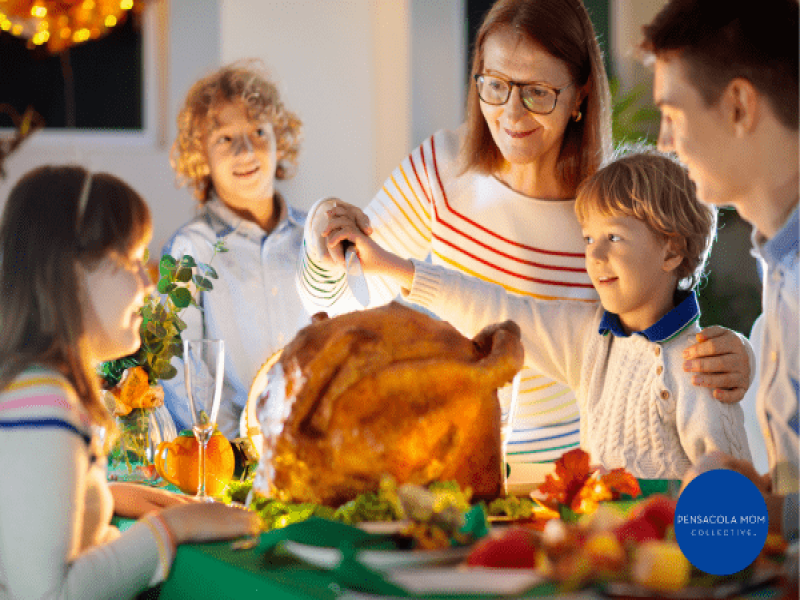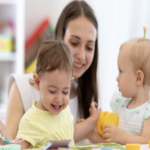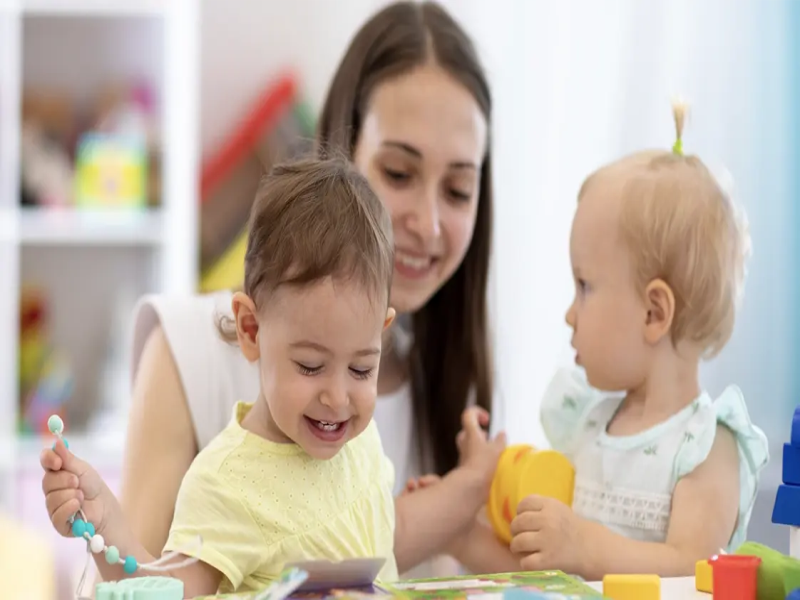Introduction
In today’s busy world, being a parent can feel like a never-ending stream of tasks, due dates, and requests. It’s easy to get lost in the chaos and forget what’s important: building strong, healthy bonds with our kids. Being mindful as a parent is a strong way to deal with the challenges of modern parenthood and find joy again during busy times. – Finding Joy in the Chaos
Making mindfulness a part of our daily lives can help us feel more calm, focused, and compassionate, which in turn makes our relationships with our kids better. Let’s talk about how being mindful can change the way you parent and help you find happiness in the mess.

The Challenges of Modern Parenting
These days, being a parent is hard and complicated. There are many problems that parents have to deal with these days that can really affect their health and their ability to connect with their kids. Here are some of the most usual problems:
• Lack of Time: Parents who work long hours, have school responsibilities, and do a lot of housework can feel stressed and worn out.
• Distractions from technology: Smartphones, computers, and social media can make it hard to spend real time with family and talk to each other in a useful way.
• High Expectations: The push from society to be great parents can make parents feel bad about themselves and guilty.
• Financial Stress: Uncertainty about the economy and rising prices can make families anxious and tense.
• Childcare Problems: It can be very hard for working parents to find reliable and cheap child care.
These problems can hurt parents’ mental and emotional health, making them more stressed, anxious, and burned out. Parents are less likely to be gentle, understand, and meet their children’s needs when they are worried. This can hurt the bond between a parent and child and slow down the mental and social growth of children.
Parents can learn to deal with worry, control their emotions better, and be more upbeat and helpful as parents by practicing mindfulness.
The Power of Mindfulness in Parenting
Being fully present in the present moment without judging it is what mindfulness is all about. Parents can become more aware of their thoughts, feelings, and emotions by practicing mindfulness. Because they are more aware, they can handle problems with more clarity, kindness, and understanding.
Mindfulness can help parents in many ways.
• Less stress: Meditation and deep breathing are examples of mindfulness methods that can help parents deal with stress and worry.
• Better Control of feelings: Being mindful can help parents control their feelings so they don’t respond badly to difficult situations.
• Better Focus: Parents can pay more attention to their kids, even when they are busy, if they practice mindfulness.
• More understanding: Being mindful can help parents understand their kids’ thoughts and feelings more deeply.
• Stronger bonds between parents and children: Parents can make stronger, more important ties with their children when they are present and aware.
Mindfulness can help parents make their homes more peaceful and happy by adding it into their daily lives.
Adding Mindfulness to Your Everyday Life
Being mindful doesn’t have to take a lot of time. Being aware for even short periods of time each day can have a big effect on your health and how you parent. Here are some ways to make mindfulness a part of your daily life:
Mornings with Mind: How to Start the Day
• Wake up slowly. Don’t rush to get out of bed; instead, take a moment to breathe deeply and feel connected to your body.
• Set Intentions: Take a few minutes before you start your day to think about what you want to achieve. What do you want to get done? What kind of parent do you want to be?
• Mindful Breakfast: Enjoy your breakfast and pay attention to how it tastes, smells, and feels. Enjoy every bite and the moment.
Mindful Moments During the Day:
• Mindful Breathing: To calm your mind and body, take a few deep breaths at different times during the day.
Pay attention to how your feet feel on the ground, the beat of your breath, and the sounds and sights around you as you walk mindfully.
• Mindful Eating: Pay attention to how your food tastes, smells, and feels. Take your time and enjoy every bite.
As you do everyday things with your child, like bath time or sleep, take a moment to connect with them. Pay close attention, look them in the eyes, and be fully present.
Smart routines for going to bed
• Make a Calming Space: To make a calm space for bedtime, turn down the lights, play soft music, and use calming smells.
• Mindful Bedtime Stories: Read stories slowly and carefully, focusing on the feelings and lessons they teach your child.
• Gratitude Practice: Before going to bed, think about the good things that happened during the day. Thank God for all the good things in your life.
Adding these thoughtful activities to your daily life can help you feel more at peace and healthy, which will have a positive effect on how you parent.
Nurturing Mindful Parent-Child Relationships
Mindful parenting isn’t just a personal practice; it also means building mindful bonds between parents and children. You can build stronger bonds with your kids by doing the following:
Listening with intent:
• Put Away Distractions: When your child is talking, put away your phone and anything else that might be in the way.
• Look the person in the eye: Listen to your child and show that you care about what they have to say.
Make use of open-ended questions: Ask your child open-ended questions like “How did that make you feel?” or “What do you think we should do next?” to get them to talk about their feelings and thoughts.
• Make sure they know how you feel: Tell your kid that you understand and value how they feel.
Mindful Play: Making Friends Through Fun
Unstructured Play: Do things like building blocks, drawing, or playing in the park that don’t have a set plan.
• Be Fully Present: Don’t do anything else while you play with your child. Pay attention to what you’re doing and enjoy the moment.
• Do What Your Child Wants: Let your child choose how to play and react to what they are interested in.
Setting Limits With Care
• Set Clear Boundaries: Tell your child what the rules are for behavior and stick to them.
• Use positive reinforcement: praise and encouragement are good ways to reward good behavior.
• Stay out of power struggles. If your child acts up, try to correct them in a calm and firm way.
• Make Good Use of Time-Outs: If you need to, use time-outs to calm down and think about your behavior.
Your child’s mental and social growth will be helped by these methods that you can use to make your home a happier and more helpful place.
Self-Care for Parents Who Are Mindful
As a parent, it’s easy to put your kids’ needs ahead of your own and forget about your own health. But taking care of yourself is important for keeping your mental and emotional health in good shape. This makes you a better parent who is gentle, caring, and effective.

Putting self-care first
• Plan time for self-care: Every day, set aside time for yourself, even if it’s only a few minutes.
• Do meditation with mindfulness: Meditation can help you feel less stressed, concentrate better, and learn more about yourself.
• Get some exercise. Working out can improve your health, make you feel better, and lower your stress.
• Spend time with people you care about: Spend time with friends and family who help and support you.
• Set Limits: Learn to say “no” to extra obligations and put your own needs first.
Making a Community That Helps Each Other
• Join parent groups to meet other parents who know what it’s like to deal with the ups and downs of being a parent.
• Get Professional Help: If you’re having trouble with stress, worry, or sadness, you might want to talk to a therapist or counselor.
• Self-compassion means being kind and gentle with yourself, especially when you mess up.
Putting yourself first can help you be a stronger and more caring parent. Don’t forget that you can’t pour from a cup that’s not full. You need to take care of yourself so you can help your family.
Embracing the Journey
Being a mindful parent is a process, not a goal. It’s not about being perfect, but about making progress. Being more aware can help you be a better parent by making your daily life more peaceful, caring, and rewarding.
Don’t forget that it’s okay to mess up. Take your time with yourself and your kids. Enjoy the confusion and the little things that bring you joy.
You can turn the hard parts of being a parent into chances to grow and bond by practicing awareness.
In conclusion
You can turn the hard parts of being a parent into chances to grow and bond by adding mindfulness into your daily life. Don’t forget that it’s a trip, not a goal. Allow yourself and your kids to be gentle, and enjoy the chaos.
You can make your family life more peaceful, loving, and rewarding by practicing awareness.

References
- Mindful Parenting: Understanding traces from the past. Sejal Mertia. National Forensic Sciences University. 2021.
- The Mindful Parent: Shirley Pastiroff
- Mindful Parenting: Practicing Mindfulness with Your Children: Left Brain Buddha
- Mindful Parenting and me: Jessica Macdonald Coaching
- Mindful Families: http://www.mindfulfamilies.ca/PDFs/Mindful%20Parenting%20References%20List.pdf







